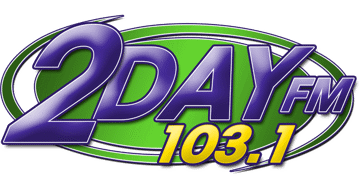Gov. Pillen Signs Letter to USDA Requesting Removal of Soda & Energy Drinks from SNAP Purchases
 (1)-2025-04-07-15-36-19.jpg?width=610)
Listen to the press event below.
LINCOLN, NE – Today, Governor Jim Pillen signed a letter of intent to Secretary Brooke Rollins of the U.S. Department of Agriculture (USDA), notifying her of Nebraska’s intent to pursue a Supplemental Nutrition Assistance Program (SNAP) waiver, removing soda and energy drinks from SNAP allowable purchases. Nebraska is the second state to submit such a waiver.
Gov. Pillen was joined by leadership from the Department of Health and Human Services; Dr. Eric Sherman, chief medical officer at the Charles Drew Health Center; Director of the Department of Agriculture Sherry Vinton; and Senator Brian Hardin, chairman of the Legislature’s Health and Human Services Committee.
“We are starving in the midst of plenty,” said Gov. Pillen. “We are surrounded by an endless number of food and beverage choices that contain numerous preservatives, carbohydrates and sugars, which can lead to obesity, high cholesterol, diabetes and other chronic diseases.”
The SNAP program supports individuals and families with access to nutritious options to improve their health and well-being. However, SNAP currently allows the purchase of any food or beverage that has a nutritional label, regardless of its nutritional value. According to the USDA, soft drinks or soda are the most common SNAP purchase. Approximately 75,000 households or 152,000 individuals receive SNAP benefits in Nebraska. It is estimated 67,690 are youth.
Studies have shown children who drink high levels of soda are more likely to exhibit withdrawn behavior and attention problems. High levels of sugar can also lead to long-term effects such as type 2 diabetes, tooth decay, heart disease, and poor bone health. Caffeine found in energy drinks also has negative effects in children and youth, including increases in stress, anxiety, agitation, sleep disturbance, and high blood pressure, often leading to difficulties in learning and academic performance.
“Unfortunately, the obesity epidemic is only getting worse in the United States. The key to making health improvements is to encourage physical activity, healthy food and drink choices, and healthy eating behaviors,” said pediatric endocrinologist Dr. Eric Sherman, Chief Medical Officer of the Charles Drew Health Center in Omaha. “I appreciate Governor Pillen for his willingness to take this important step to promote health and wellness in Nebraska.”
“Protecting Nebraska’s children is a top priority for Governor Pillen,” said DHHS CEO Steve Corsi. “The decision to omit harmful drinks from SNAP purchases is an important step that will help children and families live healthy lives and have bright futures.”
Once approved by the USDA, DHHS will partner with grocers and other stakeholders to implement a waiver that will ensure Nebraskans are able to maximize their SNAP dollars while accessing healthy options.
“My team and I are ready to hit the ground running and collaborate with our partners as we develop the waiver and implementation plan that expands outreach efforts and supports participants in accessing tools and resources to make informed and healthy choices,” said Shannon Grotrian, director of the DHHS Office of Economic Assistance.
Speaking about soda in particular, Sen. Hardin noted that while enjoyable, it was questionable that soda could be characterized as a healthy product.
“We’re going to do something about that here in Nebraska and other states will be following us in that endeavor,” said Sen. Hardin. “It’s exciting to be part of something that helps people to live better and feel better.”
Nebraska Appleseed Reaction
LINCOLN, NE – Today, the Nebraska Department of Health and Human Services (DHHS) announced that they will be submitting a waiver to the USDA to prohibit people from using their Supplemental Nutrition Assistance Program (SNAP) benefits to purchase soda and energy drinks. This is a waiver invited by US Secretary of Health and Human Services, Robert F Kennedy Jr., following the submission of similar waivers across the country.
Nebraska Appleseed’s Program Manager for Food and Nutrition Access, Eric Savaiano, issued the following statement in response:
“As the cost of living continues to rise and wages stagnate, one in thirteen Nebraskans use SNAP to buy the food they need to survive and feed their families. In a clear effort to fall in line with current federal ideology, Nebraska leadership has chosen to submit a waiver to restrict the purchase of soda and energy drinks with SNAP benefits. This not only adds to the many hoops SNAP participants already jump through to receive food benefits, but also imposes burdensome administration requirements on grocers, which can be especially harmful for small businesses.
Restrictions like the ones in this DHHS waiver assume that people with low incomes can’t make the right decision when it comes to food purchases. In fact, studies have shown that SNAP participants’ diets and food purchases are no different from the general population. Putting these restrictions in place will poverty-shame already stressed low-income Nebraskans and do nothing to fight the challenges facing American health.
Instead of demonizing SNAP participants and policing food choice, our state should have a serious discussion about the price of food, the adequacy of SNAP benefits, and real solutions to combat poverty.”
Gov 4 7 25
